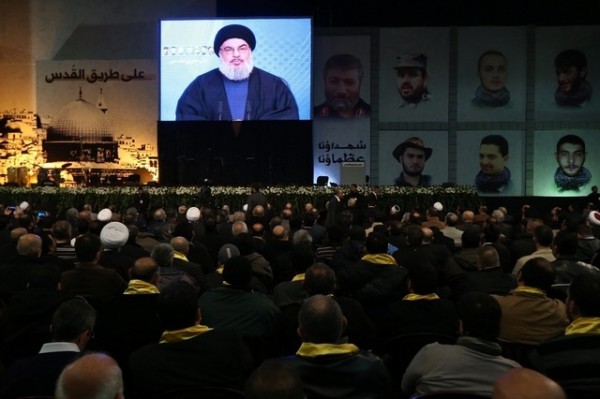
Hassan Nasrallah was quick to stress that the piles of rubbish recently lining Beirut’s streets again exposed the Lebanese state’s ineffectiveness at managing a simple service.
The Hezbollah secretary-general chided his domestic opponents for calling on his group to disarm while they failed to fulfil the basic services of a government.
“Establish a real state and then come talk to us about that,” he said in a televised speech on July 25.
This would be a fair criticism were it not coming from the head of an organisation that has largely undermined Lebanon’s state institutions, and – along with the country’s other sectarian factions – hindered its ability to serve its citizens.
Mr Nasrallah speaks with accuracy when he refers to the dysfunctionality of the Lebanese state. The country’s infrastructure continues to crumble, while factions feud over government and military positions and the seat of the president, which has been vacant since May 2014. According to the World Bank, more than 1 million Lebanese – nearly a quarter of the population – are living in poverty as the economy struggles with a staggering public debt of 149 per cent of GDP, and a burgeoning Syrian refugee population of 1.2 million.
Twenty-five years after the end of the country’s civil war, the Lebanese state still cannot provide 24-hour electricity to its citizens or guarantee a supply of water all-year-round.
Now, nearly a month after Lebanon’s largest landfill closed down, the state has still not found a long-term solution for its waste. The piles of rubbish that were previously lining the capital’s streets have mostly been removed but much of it has instead been illegally dumped in spots across the country.
The current rubbish crisis is but a continuation of historic state mismanagement, and hardly a surprise for the average Lebanese, whose priorities have long been forgotten by the country’s political leaders.
Lebanon’s failure as a state stems from the fact that its political and socio-economic systems are rooted in sectarianism and clientelism – where so-called favours are given in exchange for political support.
Lebanon’s political system divides governance among sectarian fiefdoms, where each sect determines its own political rulers and policies from within its communities. However, each sect follows the same pattern, whereby the loyalty of locals is awarded to political parties in exchange for favours. Often these favours consist of employment and basic services normally provided by the state. As Sami Atallah, executive director of the Lebanese Centre for Policy Studies, noted in a 2014 conference on this very topic, “politicians compete with the state in the provision of these services through the use of state resources, and in the process weaken the role of the state”.
In this way, Lebanese political factions have essentially formed mini-states that collectively work to compromise the independence, integrity and efficiency of the central state. They have each clearly demarcated their territories with banners, posters and flags displaying their respective political insignia, as well as the presence of small militias, which handle security.
As these factions are often guaranteed parliamentary representation, there is little accountability and therefore incentive for these factions to change behaviour, or develop policies focused on economic development and the public interest.
The chief protagonist of this system is Hezbollah , the most powerful political and military force in the country. Hezbollah ’s strength can largely be attributed to its ability to build the most successful mini-state of all Lebanon’s factions. In addition to its paramilitary forces, it has an extensive services network, supplanting the role of the state in the regions it dominates by providing health, education, employment, welfare and internal security.
Hezbollah is acutely aware that any strengthening of the central state would challenge its position in the country, and undermine its own ability to provide services that have so far guaranteed strong support from the Lebanese Shiite community. At present, there is no authority in Lebanon capable of overriding Hezbollah , a status quo that the group is determined to maintain. While rival Lebanese factions may oppose Hezbollah ’s power, a weak state enables them to operate their own fiefdoms within their sectarian enclaves. There is therefore little push from major political forces to introduce reforms that would strengthen state institutions.
While Hezbollah has publicly stated that it desires a secular democracy, which would go a long way to reducing the divisive sectarian politics that plague the political system, it has done little to actively press this matter. This is despite its allies controlling the government of Nijab Mikati between 2011-2013. No serious political reforms to improve the efficiency and cohesion of the political system were introduced during that government’s time in power, and no major infrastructure, development or economic projects – which are urgently needed – were undertaken.
If Hezbollah wanted to build a “real state”, it has had ample opportunity to do so.
By: Antoun Issa
THE NATIONAL

Leave a Reply
You must be logged in to post a comment.